21st December 2021
Educating girls despite a global pandemic
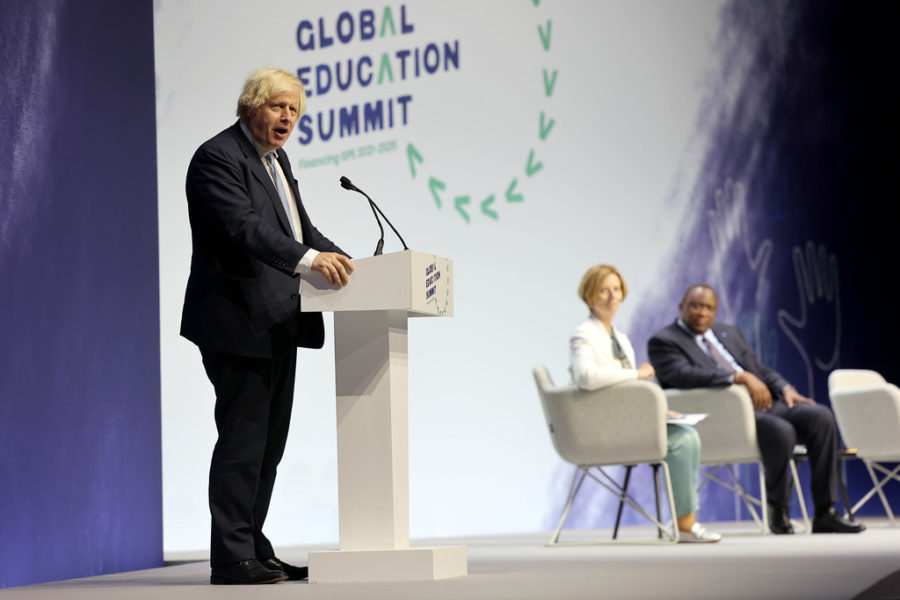
What have the Prime Minister, Battersea Park and a camel in Pakistan got in common?
They’ve all helped further the cause of girls’ education this year.
Despite the disastrous impact of COVID-19 on children’s learning across the world, the UK has continued to support the education of the world’s most marginalised children – particularly girls – in many different ways.
Sometimes this is on the global stage – like at the G7 or the Global Education Summit. But most often it’s on the ground, in communities, classrooms or even with students and parents in their homes, through the programmes we fund and the policy choices we help governments make.
On the world stage
So, here are some of our highlights from 2021:
- Girls’ Education Action Plan: Prime Minister Boris Johnson launched our Girls’ Education Action Plan which sets out our five year strategy for supporting the world’s most marginalised children into education.
- G7: We secured pioneering G7 endorsement to two, brand new, global girls’ education objectives, and agreed a political girls’ education declaration.
- Human Rights Council: The UK co-led a resolution on girls’ education with the UAE: UN Human Rights Council 47.
- Global Education Summit: We co-hosted the Global Education Summit with Kenya in July, raising $4 billion (£2.9 billion) for the Global Partnership for Education.
- COP26: We showed that girls’ education is essential for responding to the climate crisis. Today’s girls can be tomorrow’s innovators, pioneers and campaigners – and quality education helps girls, their families, and communities cope better with extreme weather events.
- RewirED: Just this month, at RewirED in Dubai, we showcased the best of FCDO’s education work on education in emergencies, climate change, education financing and underscored our close collaboration on girls’ education with the UAE.
Across the world
Here are some of the real-world results that we’ve achieved for girls and young women:
- Accelerated learning in Nigeria: Our Literacy and Maths Accelerator (KaLMA) in Kano State, delivered by the British Council, boosted basic literacy and numeracy skills for over 30,000 pupils using the Teaching at the Right Level approach. This approach groups learners according to their skill level (rather than age or grade) and uses engaging, relatable activities.
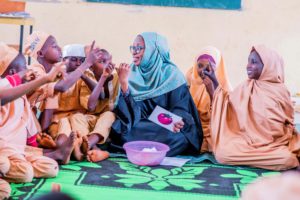
- ‘Radical Inclusion’ is the declared vision of Sierra Leone’s government, allowing every child to live and learn in safety and dignity. Leh Wi Lan (Way We Learn in Krio) is improving the quality of secondary education across the country, with an emphasis on helping girls and other marginalised learners, such as pupils with disabilities, who are often discriminated against and deprived of their right to safe, inclusive, and quality education.
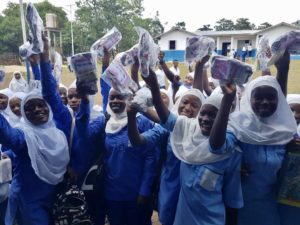
- Electricity by Camel in Pakistan: In Pakistan, a lack of basic facilities in government schools slows enrolment and leads to dropout– a problem that is especially severe in remote areas. The Solar Schools Project equips school buildings with solar panels. Some areas are so difficult to reach that camels are delivering the equipment – mixing new technology with centuries-old solutions.
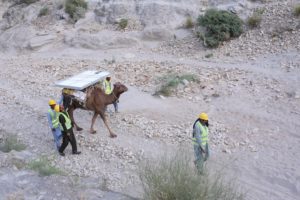
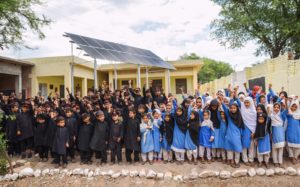
- Taking climate action in Nepal: The ENGAGE Project, delivered by VSO as part of our flagship Girls’ Education Challenge (GEC), is a powerful example of girls’ voices being heard and acted upon, on issues such as national policy and planning around climate change. Nepal is the 10th most affected country, according to the Climate Risk Index 2021. The Prime Minister’s Special Envoy for Girls’ Education Helen Grant recently visited the project.
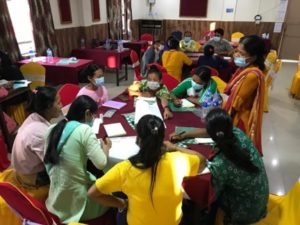
What next?
Huge challenges lie ahead. Globally, COVID-19 looks set to disrupt a third consecutive school year, and economic losses are already being felt. School closures have already eroded children’s safety and well-being, and crucially their readiness to learn.
The Foreign Secretary has announced that we’re restoring the women and girls development budget to what it was before the Overseas Development Assistance (ODA) cut.
So as we head towards 2022, we have a huge opportunity – together with all our partners – to keep on improving children’s chances one day at a time.
